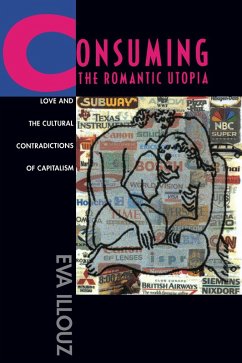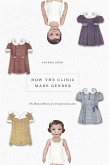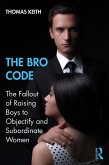To what extent are our most romantic moments determined by the portrayal of love in film and on TV? Is a walk on a moonlit beach a moment of perfect romance or simply a simulation of the familiar ideal seen again and again on billboards and movie screens? In her unique study of American love in the twentieth century, Eva Illouz unravels the mass of images that define our ideas of love and romance, revealing that the experience of "true" love is deeply embedded in the experience of consumer capitalism. Illouz studies how individual conceptions of love overlap with the world of clichés and images she calls the "Romantic Utopia." This utopia lives in the collective imagination of the nation and is built on images that unite amorous and economic activities in the rituals of dating, lovemaking, and marriage.
Since the early 1900s, advertisers have tied the purchase of beauty products, sports cars, diet drinks, and snack foods to success in love and happiness. Illouz reveals that, ultimately, every cliché of romance-from an intimate dinner to a dozen red roses-is constructed by advertising and media images that preach a democratic ethos of consumption: material goods and happiness are available to all.
Engaging and witty, Illouz's study begins with readings of ads, songs, films, and other public representations of romance and concludes with individual interviews in order to analyze the ways in which mass messages are internalized. Combining extensive historical research, interviews, and postmodern social theory, Illouz brings an impressive scholarship to her fascinating portrait of love in America.
This title is part of UC Press's Voices Revived program, which commemorates University of California Press's mission to seek out and cultivate the brightest minds and give them voice, reach, and impact. Drawing on a backlist dating to 1893, Voices Revived makes high-quality, peer-reviewed scholarship accessible once again using print-on-demand technology. This title was originally published in 1997.
To what extent are our most romantic moments determined by the portrayal of love in film and on TV? Is a walk on a moonlit beach a moment of perfect romance or simply a simulation of the familiar ideal seen again and again on billboards and movie screens?
Since the early 1900s, advertisers have tied the purchase of beauty products, sports cars, diet drinks, and snack foods to success in love and happiness. Illouz reveals that, ultimately, every cliché of romance-from an intimate dinner to a dozen red roses-is constructed by advertising and media images that preach a democratic ethos of consumption: material goods and happiness are available to all.
Engaging and witty, Illouz's study begins with readings of ads, songs, films, and other public representations of romance and concludes with individual interviews in order to analyze the ways in which mass messages are internalized. Combining extensive historical research, interviews, and postmodern social theory, Illouz brings an impressive scholarship to her fascinating portrait of love in America.
This title is part of UC Press's Voices Revived program, which commemorates University of California Press's mission to seek out and cultivate the brightest minds and give them voice, reach, and impact. Drawing on a backlist dating to 1893, Voices Revived makes high-quality, peer-reviewed scholarship accessible once again using print-on-demand technology. This title was originally published in 1997.
To what extent are our most romantic moments determined by the portrayal of love in film and on TV? Is a walk on a moonlit beach a moment of perfect romance or simply a simulation of the familiar ideal seen again and again on billboards and movie screens?
Dieser Download kann aus rechtlichen Gründen nur mit Rechnungsadresse in A, D ausgeliefert werden.









